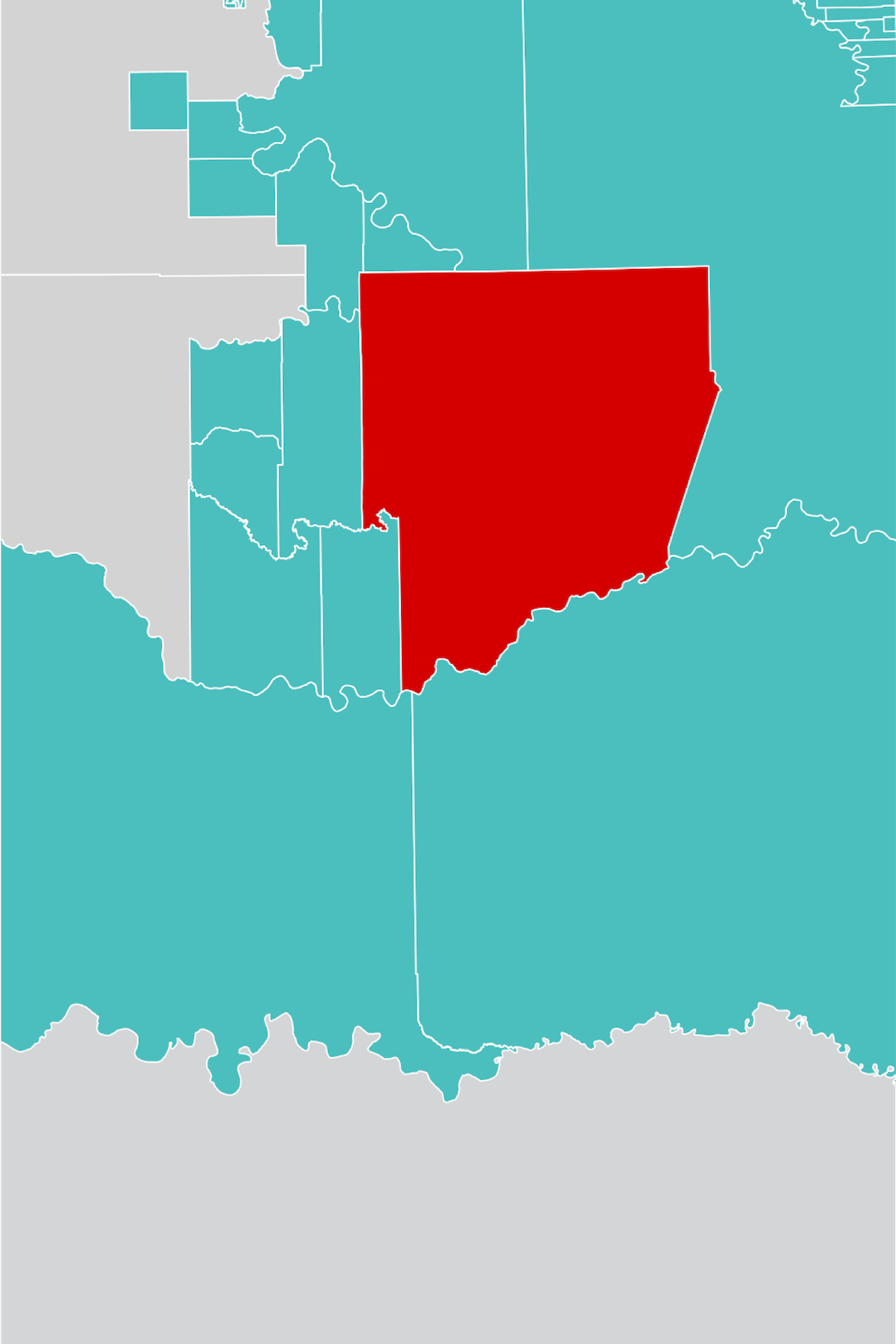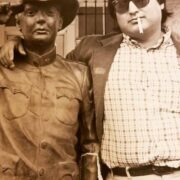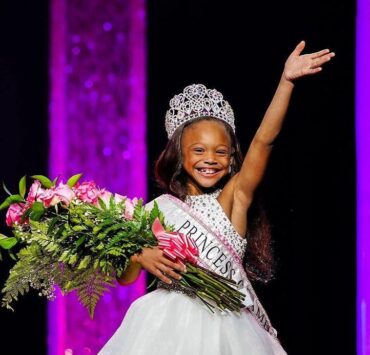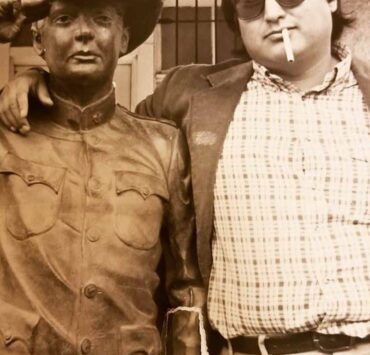
LOCAL & STATE
Deon Osborne
Map of Oklahoma showing Oklahoma Tribal Statistical Areas (teal) with the Muscogee (Creek) Nation highlighted (red). Photo Wikimedia Commons
When Creek Freedmen plaintiffs Rhonda Grayson and Jeff Kennedy won their civil case for citizenship in Muscogee Creek Nation (MSN) on Sept. 27, 2023, they thought it would end the years-long legal battle for full recognition in the tribal nation of their ancestors.
It didn’t.
Instead, the Attorney General for the Muscogee (Creek) Nation appealed the ruling to the MCN Supreme Court. The Supreme Court can either uphold or reverse the district court’s ruling after it hears oral arguments in Okmulgee on July 26.
Grayson and Kennedy are spending the next weeks preparing for oral arguments before the Supreme Court. The stakes are vital for both sides.
For the plaintiffs, it is the opportunity to fulfill a promise, a promise made in 1866 to grant tribal membership to Creek Freedmen. They are African Americans whose ancestors were enslaved by members of the Creek Nation. Both Grayson and Kennedy live in Oklahoma City.
Grayson, a genealogist, attended Douglass High School in OKC and the University of Central Oklahoma. Kennedy, a retired architect, studied at John Marshall High School in OKC and the University of Oklahoma.
“African Creeks played a crucial role in the Muscogee people’s history, fighting alongside them during and after the war,” Grayson said in a statement to the Oklahoma Eagle. “They had to flee from their homeland twice: first during the 1830s forced removal to Indian Territory and later during the Trail of Blood on Ice during the Civil War, where they fought alongside Chief Opothleyahola to Kansas. Chief Opothleyahola promised them freedom if they joined his party, emphasizing their loyalty and sacrifice. It is time to end this 40-year battle and restore the citizenship rights of the Creek Freedmen descendants.”
“It’s important to me because it’s my birthright,” Grayson told Muscogee (Creek) Nation District Judge Denette Mouser during the April 2023 trial. In that trial, Judge Mouser firmly sided with Grayson and Kennedy.
“The decisions of the [Citizenship] Board in denying the citizenship applications of the plaintiffs are hereby reversed and remanded to the Citizenship Board of the Muscogee Nation for reconsideration of the plaintiffs’ application for citizenship in accordance with the clear language of Article II of the Treaty of 1866,” she ruled on Sept. 27, 2023.
For the defendants, the case could result in the loss of sovereignty for the Creeks, one of the tribes resettled in Oklahoma from the southern states in the 1830s. Supporters of the plaintiffs, including lawyers and some members of Congress, warn that those opposed to giving the Freedmen citizenship risks dismantling tribal sovereignty for the entire nation.
Treaties are “the supreme law of the land”
This often overlooked chapter of American history started back in the 1830s when some members of the Muscogee Creek Nation brought enslaved African Americans with them during the forced relocation of Native Americans from the southeastern United States to Indian Territory. The event was known as the Trail of Tears.
In exchange for ending its partial participation in supporting the Confederacy during the American Civil War, the Muscogee Nation was pushed to free all enslaved members and grant full citizenship to Creeks of African descent and their descendants through the Treaty of 1866 with the U.S. government.
Article V of the U.S. Constitution states that treaties represent the “supreme law of the land.”
“When we’re talking about treaty rights of a nation, the only way that those can be abrogated is by an express abrogation from Congress,” Jana Knott, an Oklahoma civil appeals lawyer, told The Oklahoma Eagle.
During the 2023 trial, Muscogee (Creek) Nation Attorney General Geri Wisner pushed back against that perspective. She argued that the tribal nation’s 1979 Constitution superseded the Treaty of 1866. The 1979 MCN Constitution expelled all Creek Freedmen by adding a “by-blood” requirement. It ignored the fact that the classification of “Freedmen” and “by blood” was a creation by the U.S. government as it moved to break up Indigenous land into tribal allotments.
In 1893, the U.S. government established the Dawes Rolls, which placed anyone who appeared to be of African descent on the Creek Freedmen roll, even if they had blood ties.
Muscogee Nation Judge sanctioned Muscogee Nation AG for “veiled threats”
After her argument failed to convince Judge Mouser to deny citizenship to Freedmen, Muscogee AG Wisner immediately appealed to the MCN Supreme Court. Her new argument for denying Freedmen takes a different approach that risks upending tribal sovereignty entirely, Freedmen supporters warn.
According to a court filing, District Judge Mouser sanctioned Wisner for allegedly attempting to intimidate the judge before her final verdict, according to a court filing. Judge Mouser accused the AG of making “veiled threats” against her when she placed a document that described how to recall a judge on Judge Mouser’s desk.
“Thus, the Court’s only inference can be that the true motive of such action was at worst a veiled threat of removal from the bench, or at best an attempt to intimidate the Court prior to its ruling on Plaintiffs’ motion and/or before rendering final judgment,” Judge Mouser stated in her July 3, 2023 sanction order.
Muscogee Nation AG takes a new approach
Months later, in an opening brief filed with the MCN Supreme Court, AG Wisner argued a 1941 order from the Solicitor of the U. S. Department of the Interior affirming the tribal nation’s right to change its citizenship requirements as it deems fit.
The 1941 order affirmed that Creek Freedmen, having been granted full rights by the Treaty of 1866, were free to vote on future tribal constitutions. Yet, it is unclear how many Freedmen were allowed to vote in the 1979 election that established the new, more exclusive constitution.
“The United States specifically recognized that reorganization under the Oklahoma Indian Welfare Act gave full authority to the Five Civilized Tribes to recognize their membership on a new basis which may exclude Freedmen as long as Freedmen were allowed to vote on the acceptance of a constitution,” AG Wisner wrote in her opening brief to the MCN Supreme Court.
Attorneys, advocates, and members of Congress respond
In response, Damario Solomon-Simmons, a Tulsa attorney representing the Creek Freedmen plaintiffs, filed a brief pointing to the 1866 Treaty. Solomon-Simmons says that Cow-Tom, a well-known and celebrated Creek Freedman ancestor who Solomon-Simmons says is one of his relatives, helped negotiate the final document.
The treaty specified that all Muscogee (Creek) Freedmen, peoples of African descent, and their descendants “shall have and enjoy all the rights and privileges of Native citizens…”
By arguing against the treaty, Freedmen supporters worry AG Wisner threatens to unravel the Muscogee (Creek) Nation’s independence in a state whose governor has labeled tribal sovereignty a threat to the safety of Oklahomans.
Amy Warne is an advocate, community organizer, and Muscogee and Seminole Nations member.
“If we expect others to hold true that treaties are the supreme law of the land, then the AG cannot pick and choose which articles of a treaty she wants to adhere to, which is ultimately what the AG is doing,” she told The Oklahoma Eagle.
It was the Muscogee (Creek) Nation that, in 2020, successfully reaffirmed the sovereignty of tribal nations throughout eastern Oklahoma in the U.S. Supreme Court case McGirt v. Oklahoma. Using Article I of that treaty, attorneys for MCN successfully convinced the U.S. High Court that Congress had never dis-established their reservation.
Meanwhile, AG Wisner appears to ignore Article II of that same treaty, which grants Creeks of African descent full citizenship rights.
“We are doing ourselves a disservice by showing others that they can pick apart a treaty and decide for themselves what will and won’t be honored. If we are to maintain our sovereignty, we must honor the whole of each treaty, and that means honoring Freedmen citizenship,” Warne said
Warne signed a March 15 legal brief seeking to express her concerns to the MCN Supreme Court, along with lawyers, advocates, tribal citizens, and lawmakers from around the country. The MCN Supreme Court denied the motion to hear the brief.
In April, members of Congress, led by Rep. Maxine Waters (D-Calif.), attempted to file a motion to have their concerns heard as well.
“Allowing an opinion letter by the Solicitor of the Department of the Interior to represent an implicit abrogation of the 1866 Treaty with the Creeks would set a dangerous precedent usurping the exclusive role of Congress and endanger the confidence of sovereign tribal nations in the obligations set forth in treaties,” the motion stated.
In total, thirteen U.S. House of Representatives members signed onto the motion. However, the MCN Supreme Court dismissed their request to be heard.
The future of the Muscogee (Creek) Nation is on the line
Muscogee (Creek) Nation leaders say excluding Black Creek Freedmen from citizenship is their sovereign right. Meanwhile, some citizens of the tribal nation hope for a future in which citizenship is granted to all who descend from the Dawes Roll, whether they are registered as “by-blood” or Freedmen.
“I hope the Court affirms the decision of the district court. The opinion from the district court was strongly tied to the treaty. It reaffirmed the treaty on its face and as applied to the plaintiffs,” Palmer Scott, an attorney and MCN citizen, told The Oklahoma Eagle.
“It will be remarkable if the Supreme Court of the Tribe reasons its way outside the treaty. I hope the superseding treaty, which proves the legal means of existence for our tribal nation, remains just that,” Scott said.
Ultimately, just four years after the full recognition of the Muscogee (Creek) Nation’s political authority was reaffirmed, citizens of the tribal nation hope that the sentiments of anti-Blackness rising in Oklahoma and elsewhere do not become their downfall.
“To me, the future of Indian Country includes all Natives , and for far too long, parts of Indian Country, including the Muscogee Nation, has not acknowledged our Freedmen, Black Indigenous, and Afro-Indigenous kin,” Warne said. “I look forward to the day when the Nation and our People realize we are stronger when we are together.”
The MCN Supreme Court has scheduled oral arguments for July 26 at 10 a.m. inside the Mound Building of the Tribal Headquarters at 2507 Lvmhvlke, in Okmulgee.
Deon Osborne is a contributor to The Oklahoma Eagle. Readers can follow his newsletter and podcast at: drum.io/deonosborne









